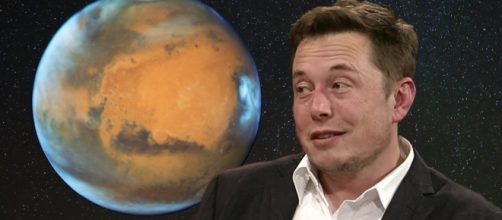SpaceX CEO Elon Musk has published a paper detailing his plans to create a Mars colony using a new super rocket, the Interplanetary Transport Ship. The plan is, putting it mildly, breathtaking, involving a rocket with twice the lift capacity of the Saturn V. The goal is to reduce the cost of a one-way trip to Mars to $200,000 to as little as $100,000 for a person plus his or her baggage. The ITP would be able to take 100 people across the interplanetary gulfs at a time.
A fleet of 1,000 ships taking 10,000 trips to Mars
Elon Musk’s vision involves building 1,000 of the Interplanetary Transport Ships that would ultimately take 10,000 voyages to and from Mars over 50 to 100 years.
The ITPs would be reusable, capable of landing and taking off on Earth and Mars and would be powered by a Raptor rocket engine that burns liquid oxygen and methane. The latter is essential as methane would be manufactured on Mars to refuel the ships for their return trips to Earth. The spacecraft would also be capable of being refueled in low Earth orbit before blasting its way out toward Mars. Musk hopes that he will be able to get the colony started in as little as ten years.
Some unanswered questions
The major issue that is not answered in Musk’s paper is how much will the cost be to develop that fleet of Interplanetary Transport Ships. Just on cursory examination, the amount of money that the project would take is likely to dwarf any previous space project, including the Apollo program.
Musk does not reveal where he intends to get the money to build his Mars colony fleet.
The other big question is how the Mars colonists are going to survive once they arrive at the Red Planet. Musk does not reveal any details about how the colony, which he eventually envisions as a city of a million people, will be built, how it will sustain itself and its inhabitants, and, most importantly, what will be the economic rationale of the colony. What will the Mars colonists do to justify the cost of transporting them across interplanetary space and keeping them alive in an environment harsher than anything found on Earth?
A multi-planet species
Musk waxes eloquently about making humankind a multi-planetary species.
The case is a good one, considering that an extinction level event like an asteroid strike could wipe out the human race in one blow. Mars could also be a destination for people yearning to make a better life for themselves than they could on Earth. But a Mars colony has to sustain itself economically for it to be viable in the long term.


